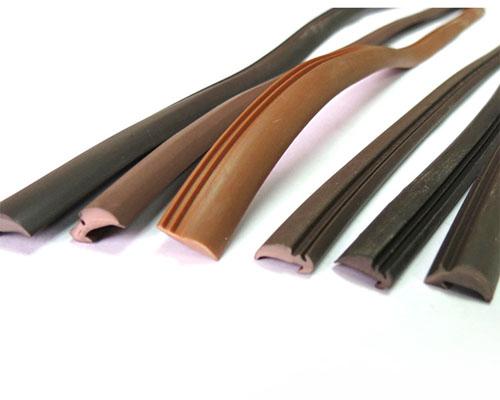Custom plastic extrusion is a critical process in many industries, enabling the creation of a wide range of products with specific shapes and properties. The success of this process largely depends on selecting the right materials. In this article, we’ll explore the best materials for custom plastic extrusion, focusing on their properties, applications, and why they are chosen by manufacturers like Jiepeng Plastic.In the long run, PVC profile The value will be higher and higher, and there will be a great leap in essence. https://www.jiepeng-plastic.com/
1. Polyvinyl Chloride (PVC)
PVC is one of the most commonly used materials in custom plastic extrusion due to its versatility and cost-effectiveness. It is a thermoplastic material that offers excellent durability, chemical resistance, and weatherability. PVC is widely used for creating pipes, profiles, and cable insulation. Its ability to be easily colored and modified with additives makes it ideal for custom applications.
Applications:
Piping Systems: PVC pipes are prevalent in plumbing, irrigation, and industrial applications.
Profiles: Used in window frames, door frames, and other construction components.
Cable Insulation: PVC provides excellent insulation for electrical cables, ensuring safety and durability.
2. Polyethylene (PE)
Polyethylene is another popular choice for plastic extrusion, known for its toughness and flexibility. It is available in different densities, including Low-Density Polyethylene (LDPE) and High-Density Polyethylene (HDPE), each with unique properties. LDPE is known for its flexibility and transparency, while HDPE is more rigid and resistant to impact.
Applications:
Packaging Films: LDPE is commonly used in the production of films and bags due to its flexibility.
Pipes and Fittings: HDPE is preferred for high-strength applications like water and gas piping.
Containers: Both LDPE and HDPE are used in manufacturing various types of containers and bottles.
3. Acrylonitrile Butadiene Styrene (ABS)
ABS is a thermoplastic polymer that is widely used in custom plastic extrusion due to its high impact resistance and toughness. It also offers good chemical resistance and can be easily machined or molded. ABS is often used in the automotive industry, electronics, and consumer goods.
Applications:
Automotive Parts: Dashboards, wheel covers, and other components are often made from ABS.
Consumer Electronics: ABS is used in the casing of computers, phones, and other gadgets.
Household Goods: Products like plastic toys, kitchenware, and storage boxes are commonly made from ABS.
4. Polypropylene (PP)
Polypropylene is a versatile thermoplastic that is widely used in custom extrusion. It is known for its high chemical resistance, low density, and ability to withstand higher temperatures. PP is also resistant to fatigue, making it suitable for applications requiring repeated use.
Applications:
Automotive: Used for battery cases, bumpers, and interior components.
Textile Industry: PP is used in the production of fibers and fabrics.
Food Packaging: Its chemical resistance makes it ideal for food containers and packaging.
5. Polystyrene (PS)
Polystyrene is a lightweight, rigid material that is easy to process and mold. It is available in both solid and foam forms, with the foam variant being widely used in packaging and insulation. Polystyrene is an economical choice for custom extrusion projects where cost and ease of processing are important.
Applications:
Packaging: Foam polystyrene is used for protective packaging and insulation.
Household Products: Solid polystyrene is used in the production of disposable cutlery, CD cases, and other consumer goods.
Construction: Insulation panels made from polystyrene foam are common in building construction.